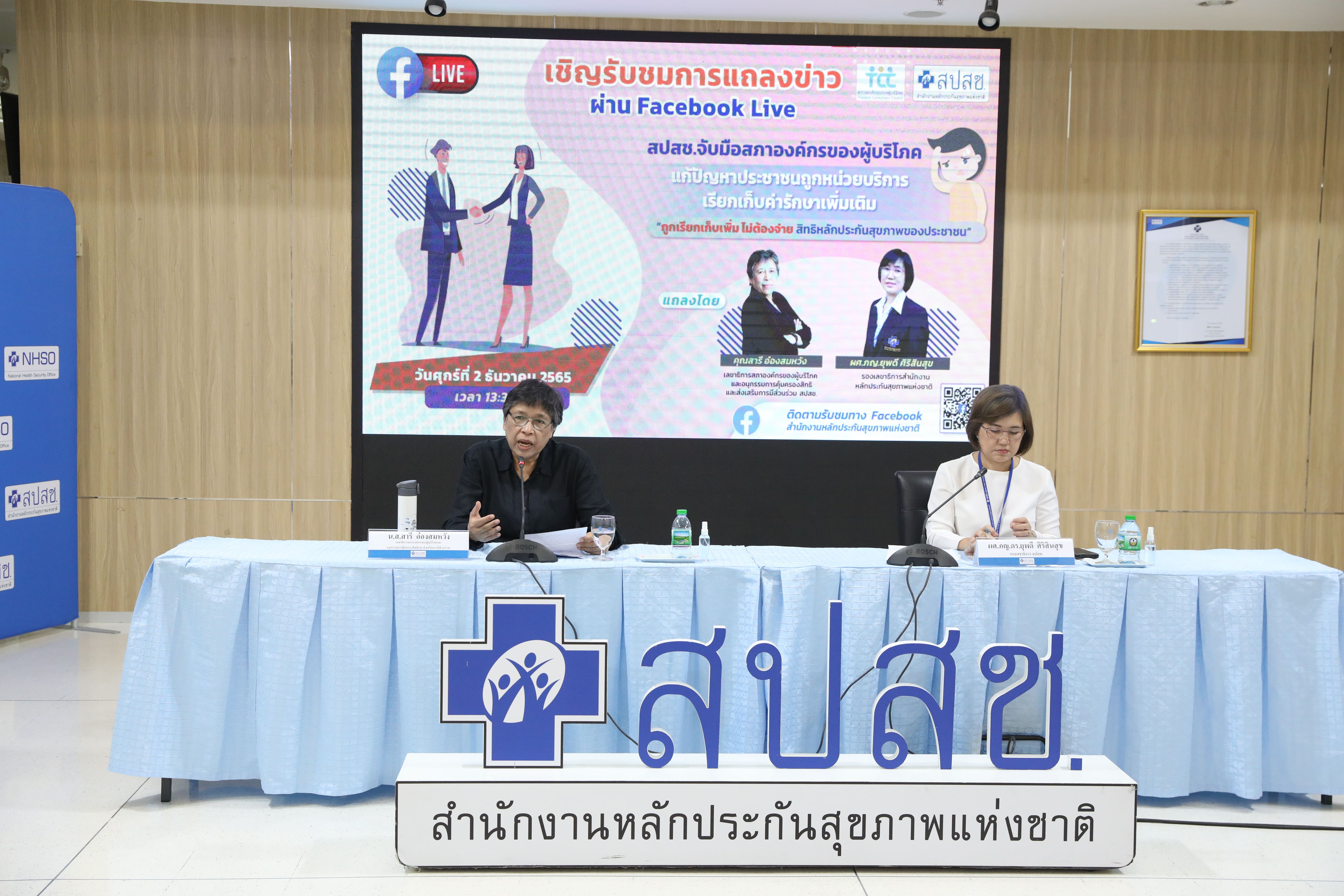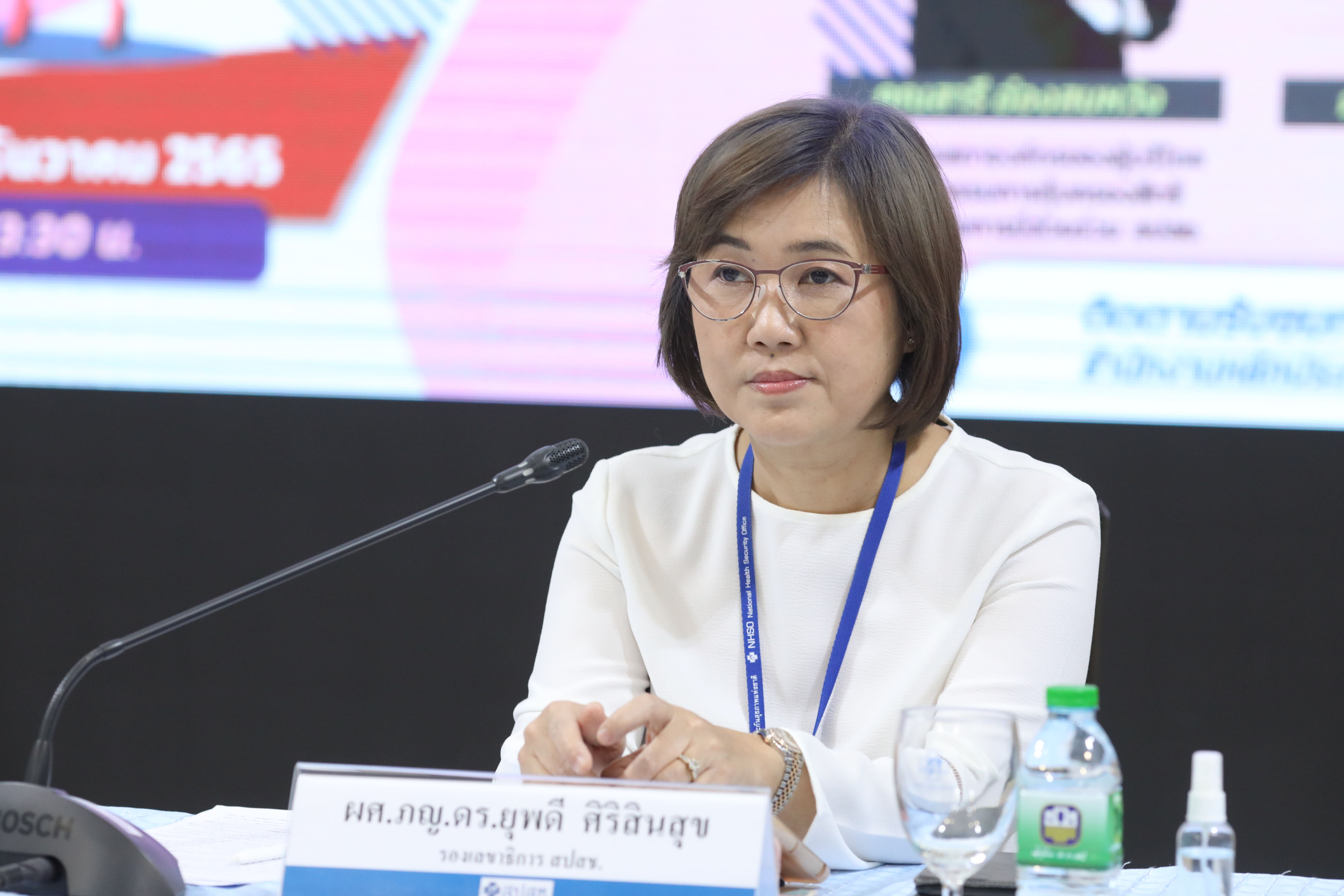
- Home
- DescriptionNews
NHSO and consumer groups to prevent extra medical charge

NHSO and consumer groups to prevent extra medical charge
National Health Security Office (NHSO) and Thailand Consumers Council (TCC) join hands to tackle extra billing for healthcare services provided under Universal Coverage Scheme (UCS).
On December 2, both organizations co-hosted a press conference at the NHSO headquarters in Bangkok to raise awareness about extra billing among the public and health providers.
.jpg)
Speaking at the event, TCC secretary-general Saree Ongsomwang said that UCS ensured healthcare access to more than 47 million beneficiaries who could request free and affordable healthcare services at hospitals partnered with NHSO.
The UCS covers thousands of items that include health services, medicines, medical supplies and devices.
However, many patients have been forced to pay medical bills, said Saree, also a member of TCC’s subcommittee for health services which tackles extra billing and ensures health service quality.
Among the complaints submitted to the subcommittee is a case of pregnant women who were charged 12,595 baht for admission with cervical dilatation in Antepartum period after her primary care transfer.
Another case is a 74-year-old disability woman who was charged 42,529 baht as the hospital staff mistakenly assumed that she was not use her primary care facility, as disability beneficiary can access his/her convenience health facility meet her need under UCS system.
Many patients were charged for emergency care, including a 72-year-old woman who was charged for emergency services even though despite the Thai government’s implementation of the Universal Coverage for Emergency Patients (UCEP) policy.
At first, she paid a medical fee as she was unaware of the policy. After she learned about it, she returned to the hospital and showed her intention to seek medical coverage under the UCEP policy.
But the hospital staff forced her to sign an agreement that stated her will to reject the scheme’s participation.
The TCC investigated the three cases and found the hospitals charged the patients for free services. They were ordered to return the money to the patients.

The NHSO deputy secretary-general Assist. Prof. Dr Yupadee Sirisinsuk said that the NHSO received 3,329 complaints relating to extra billing between 2018 and 2022, equivalent to 35.7 million baht of medical fees.
Most complaints, or 1,526 cases, were associated with health services provided at hospitals or after inter-hospital transfer.
Nearly 600 cases were relevant to health promotion and disease prevention services, 563 emergency care, 385 accident injuries, 156 health services for newborns or unemployed people, and 101 health services provided to people living with disabilities or veterans.
The top five extra-charge diseases are digestive and oral diseases, accident injuries, COVID-19, muscle and skeleton diseases, and respiratory diseases.
The top extra-charge items and services include health services, medicines, health promotion and disease prevention services, lab investigation and pathology, artificial organs, and medical devices.
“The NHSO has paid close attention to this issue. Our board members have revised the complaints case by case and set up sub-committees to resolve them,” said Yupadee, adding that patients can report extra billing via the NHSO 1330 contact center.
To solve the problem, the NHSO published a medical bill guideline to clarify which health items and services can or can’t charge under the UCS. It also issued a revised plan to prevent and monitor the extra medical charge.
///////////////////////

